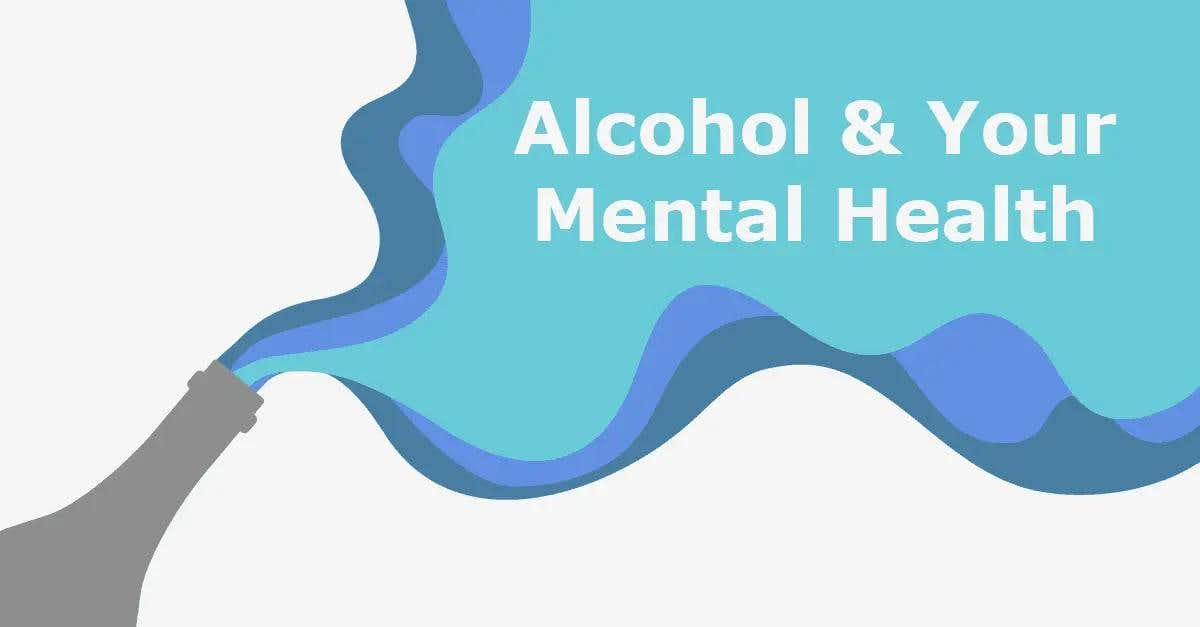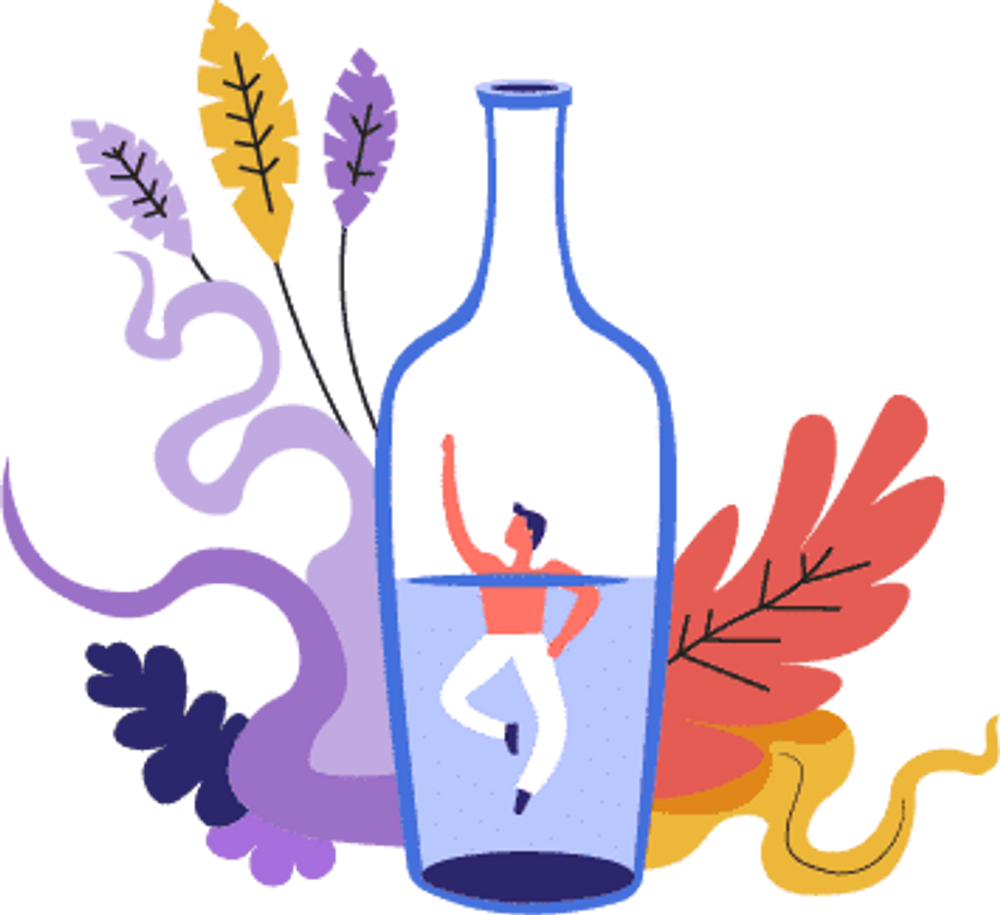April 16th, 2021

Written By: Sarah Kelly, MSW, LSW, CADC
Throughout the past year of the COVID-19 pandemic, our relationship with alcohol has shifted. Prior to the pandemic, alcohol consumption for many people often occurred in public spaces while in the company of friends and family. Many people who were drinking alcohol would do so over the weekend and would avoid or minimally consume alcohol during their workweek. However, the pandemic has shifted these trends. Due to needed restrictions on how people socialize with each other, many spaces and events where alcohol was consumed were no longer available leaving people to consume alcohol primarily alone in their homes.
Additionally, many people have experienced heightened boredom due to the limitations of social distancing which often led to higher alcohol consumption. According to Pollard, Tucker, and Green, alcohol consumption among Americans increased by 14% from April 2019 to June 2020. These increases in alcohol consumption were found to primarily impact women and adults between the ages of 30 and 59 years old.
The pandemic has also had an impact on those who have already made the choice to not consume alcohol and pursue sobriety. Many folks who are sober or are in recovery from alcohol abuse, rely on structure and social support to maintain their sobriety. The necessary measures to curb the COVID-19 pandemic had a significant impact on the ability of sober people to engage with their support systems. This led to many individuals experiencing relapses and having to return to treatment. While working at a substance use treatment center early in the pandemic, I was particularly overwhelmed by the number of individuals seeking treatment due to relapsing after having attained long-term sobriety.
These realities make it timely and important to discuss how alcohol impacts our mental health, when it may be important to not drink alcohol, and what may indicate that someone is struggling with alcohol. Additionally, it is also valuable to discuss various resources and settings where support for challenges with alcohol can be sought.

As many of us know, when consumed, alcohol affects how we think, feel, and move through the world. Many people state that they enjoy drinking alcohol because it provides “liquid courage,” improved social skills, and an overall sense of ease. However, alcohol is classified as a depressant, meaning that it slows our brains down.
With any level of alcohol use, but particularly with consistently high alcohol use, we put ourselves at risk of experiencing challenges with concentration, memory, and learning new material. People may also experience personality changes, hazy thinking, and increased symptoms of depression and anxiety. According to Health Service Executive, many alcohol drinkers will find that alcohol impacts their emotions in one of two ways: emotional numbing or heightened emotional release. Emotional numbing involves using alcohol to manage emotions and to lessen the intensity of emotions. When emotional numbing occurs, a person can become dependent on alcohol because they no longer know how to express or manage their emotions.
Conversely, emotional release can also occur because at times alcohol can make our emotions more intense. When an emotional release occurs due to alcohol use, it can lead to a higher occurrence of arguments, self-harm, violence, or thoughts of suicide. While the use of alcohol can be used by many to improve their emotional state, as described above, there are also several significant mental health-related consequences to consider.
There are several reasons that people may want to consider avoiding drinking alcohol due to alcohol’s impact on physical and mental health. Below are situations in which a person may want to avoid drinking or minimize drinking behaviors.

While discussing alcohol and its impact on emotional and physical health, it is important to consider what some of the signs and symptoms are of disordered alcohol use. According to the American Psychological Association, below are signs to look for when contemplating whether or not you or a loved one have an alcohol use disorder:
Two or more of the above symptoms indicate a mild problem with alcohol, three to five symptoms indicate a moderate problem with alcohol, and six or more symptoms indicate a severe problem with alcohol.
You may have concerns, questions, or curiosities regarding the way that you or a loved one consumes alcohol. Thankfully, there is a large network of resources for those who need support with alcohol. SAMHSA (Substance Abuse and Mental Health Services Administration) has a wide variety of resources and information specific to individual needs for substance use treatment.
If you are working towards sobriety or active in recovery, there are many support groups available in person and online for those looking for community-based support. Common support groups include Alcoholics Anonymous, SMART Recovery, and Dharma Recovery.
Each support group has a different focus, but all are meant to build a community around recovery. Seeking therapeutic support through individual therapy or group therapy is also an option when thinking about managing alcohol use.
Disclaimer: The information on this page is for educational and informational purposes only and is not a substitute for professional medical advice, diagnosis, or treatment. Always consult a qualified healthcare provider with any questions regarding a medical condition or treatment. Never ignore or delay seeking professional help due to information found here.
While we do not offer addiction treatment or detox services, we welcome individuals in substance abuse recovery who are stable and ready to focus on their mental health. At Clarity Clinic, we provide mental health care for individuals seeking support with anxiety, depression, trauma, and other emotional challenges.
For those actively using substances, a higher level of care may be necessary before engaging in meaningful therapy. We can provide referrals to external substance use treatment centers and welcome clients back once they are stabilized and ready to work on improving their lives post-treatment.
Our team is here to support your mental well-being, whether you’re navigating the emotional impact of past substance use, relationship changes, or other life transitions.

Our Services
Virtual/Online CarePHP and IOPAdult PsychiatryChild & Adolescent PsychiatryAdult TherapyChild & Adolescent TherapyCouples CounselingFamily TherapyGroup TherapyPsychological TestingTranscranial Magnetic Stimulation (TMS)Resources
Refer a PatientCareersClinical Training OpportunitiesOur ProvidersFree Mental Health TestsCommonly Prescribed MedicationsLocationsBlogIn The NewsClarity Through CharityClarity for AllQuick Links
Patient PortalFAQsAccepted InsurancesContact us